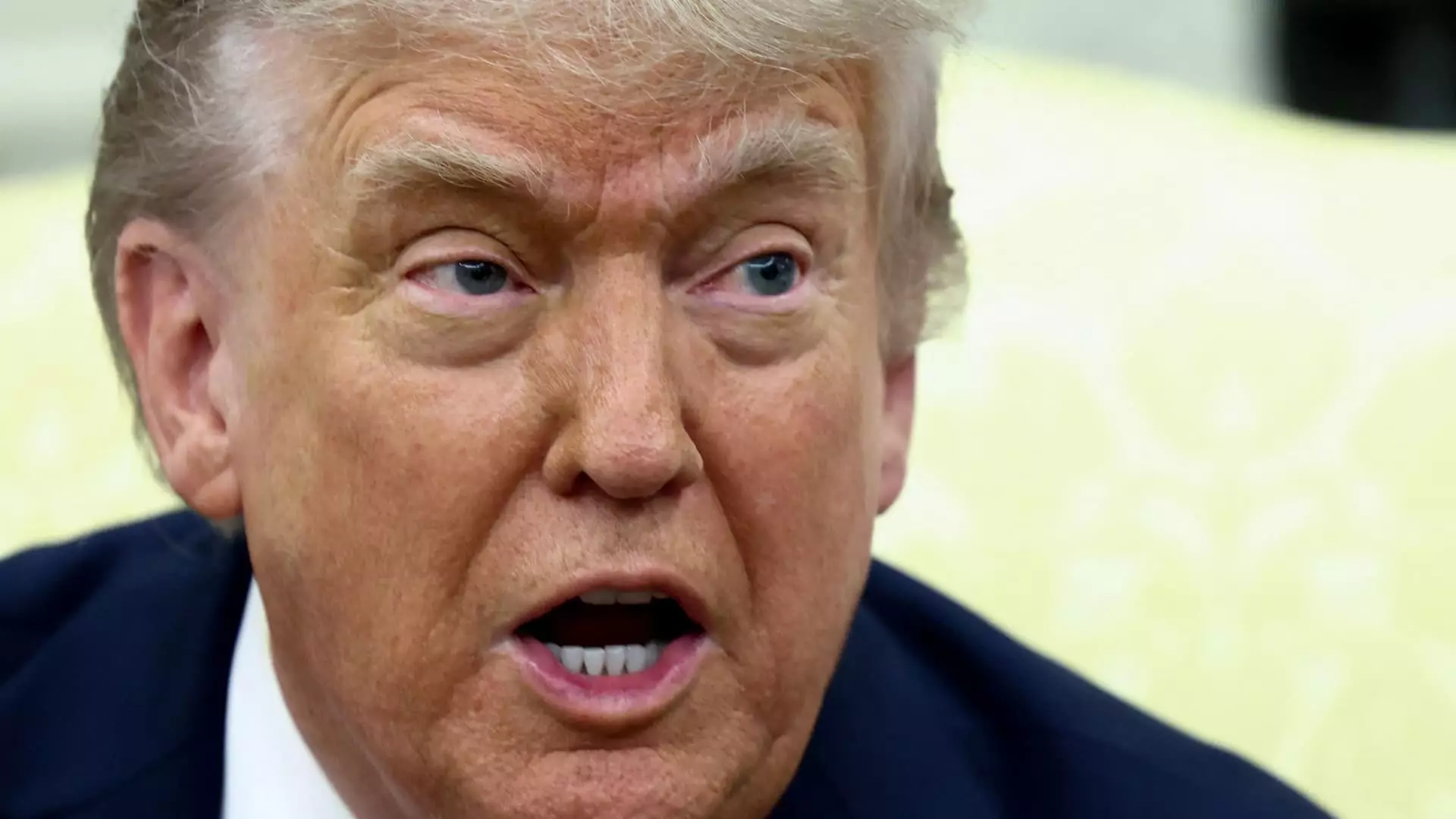The political theater between President Donald Trump and billionaire entrepreneur Elon Musk has taken a tumultuous turn, stirring discussions about the intertwining of personal interests, corporate influence, and government policy. The heart of the conflict lies in Trump’s recent tax bill proposal, which includes cuts to electric vehicle (EV) incentives—a move that Musk has openly criticized. This highly public friction encapsulates the extraordinary dynamics of their relationship, a blend of mutual benefit and burgeoning resentment.
The backdrop of this drama paints a picture of Musk, known for his audacious ventures in clean energy and space exploration, suddenly at odds with the very man he had helped financially in previous electoral campaigns. Despite contributing over $250 million to support Trump’s 2024 ambitions, Musk finds himself on the receiving end of a public rebuke from the President, which begs the question: Is this merely a personal rift, or is it symptomatic of deeper ideological divides?
Musk’s Dismissive Response
In a characteristically nonchalant manner, Musk responded to Trump’s criticism on his social media platform, opting for a terse “Whatever.” This dismissiveness not only showcases Musk’s inherent confidence but reflects a broader frustration with the political machinery that impacts the future of sustainable technology—his lifelong mission. Musk voiced his concerns over Trump’s tax legislation, describing it as a “disgusting abomination,” pointing out the double standards of cutting EV credits while leaving fossil fuel subsidies untouched.
This contradiction illuminates a crucial flaw within Trump’s policy approach; it reveals a troubling lack of commitment to long-term environmental objectives in favor of immediate political gains. To disparage substantial investments in renewable energy while seeking to preserve antiquated practices raises alarm bells. Does Trump favor old money and established industries over innovative, future-oriented enterprises? Such a stance leaves many questioning the sincerity of his commitment to progress.
The Bigger Picture of Political Alliances
What’s equally fascinating is the notion of political allegiance in this high-stakes game. Trump, embodying traditional conservative values, seems to see the world through a lens of fossil fuel superiority. His dismissal of Musk’s aims focuses not only on the EV tax credits but also pivots towards the appointment of Jared Isaacman as NASA chief, which Trump abruptly denied. Here lies a deeper issue: the consideration of ideology over meritocracy.
Isaacman’s Democratic affiliation seems to be the crux of Trump’s refusal to endorse him for NASA, suggesting that political purity supersedes qualifications in Trump’s agenda. In contrast, Musk, a self-proclaimed innovator, embodies a modern approach that transcends political boundaries, emphasizing utility and progress over partisanship. The clash hints at a potential divide within the Republican base, particularly concerning the role of technological innovators and their relationship with federal entities.
Unpacking the Genuine Conflict
But what drives this public dispute beyond simple political strategizing? At its core, this is a confrontation of two men wielding immense power in their respective domains—political and corporate. The stakes are outrageously high: for Musk, there’s a potential loss of billions in investments critical to advancing renewable energy. For Trump, the battle represents a test of his ability to uphold his vision amidst discontent from a high-profile ally.
Musk’s foray into political critique signifies more than just frustrations over financial incentives. It hints at a yearning for a leadership paradigm that embraces innovation rather than stymies it. The growing rift could serve as a clarion call for re-evaluating the relationship between government and entrepreneurship—a relationship that should ideally foster collaboration rather than conflict.
Moreover, the spectacle of public tit-for-tat reveals an underlying truth about the modern political landscape: individual voices, however powerful, are often entangled in the struggle for broader systemic change. As these two titans engage in their verbal skirmishes, the real casualties may be the crucial advancements in sustainable energy, which require a collaborative effort unencumbered by egotism and political posturing.
Ultimately, understanding this clash of titans may provide insight into the larger narrative of how ideas, innovation, and political machinations interact—and how necessary it is to bridge the divide if we are ever to navigate the tumultuous waters of climate change and technological advancement.

